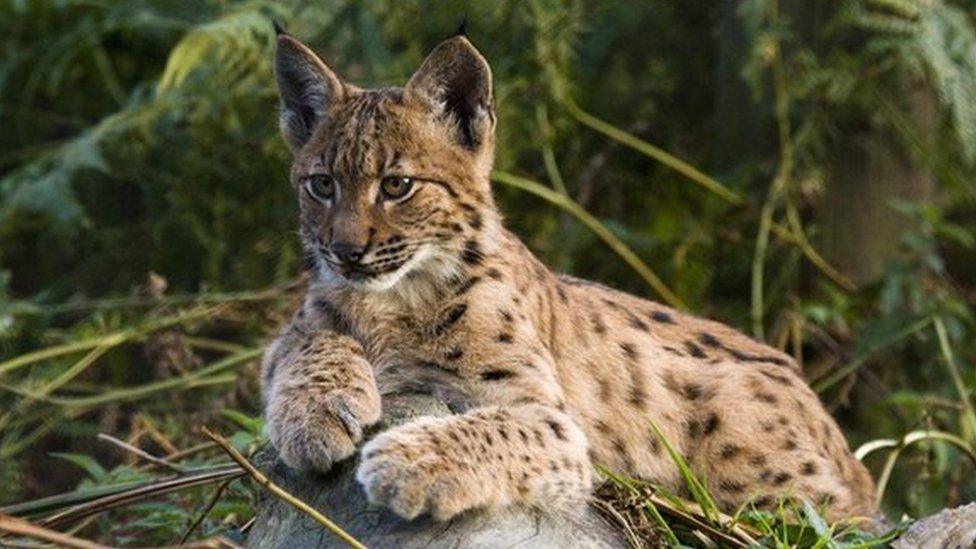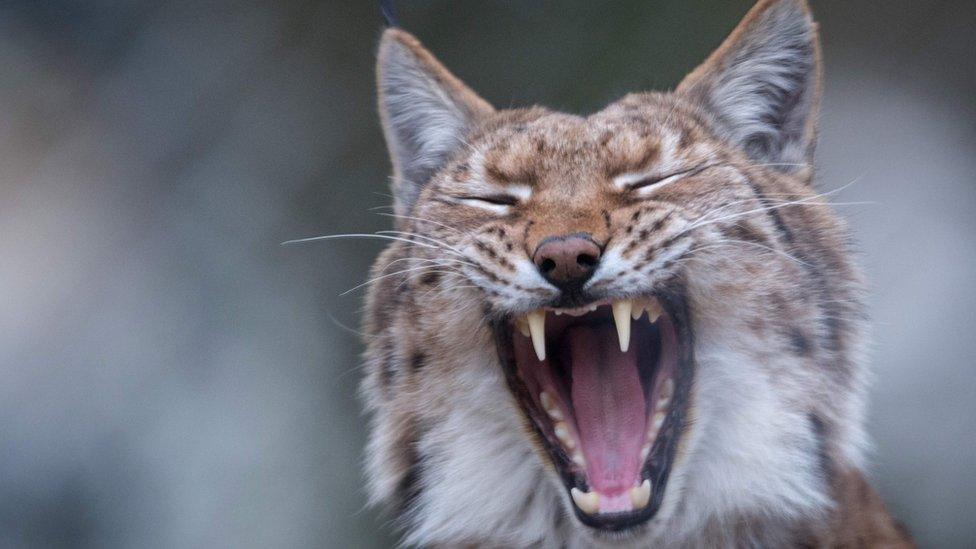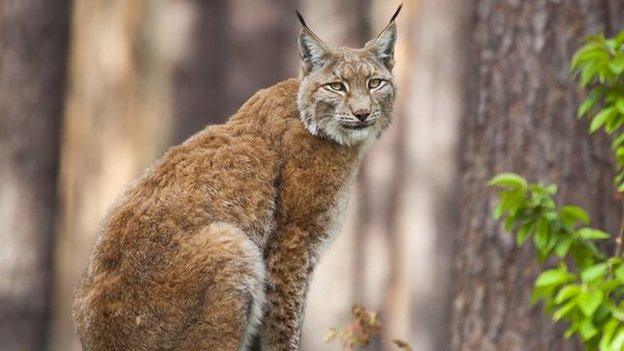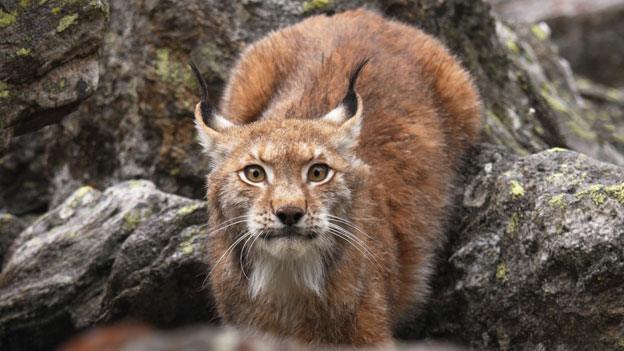Lynx return ruled out in Cumbria and Norfolk
- Published

The Lynx UK Trust has said it believes the country can support a population of up to 400 of the animals
Plans to reintroduce the lynx to the wild in Cumbria and Norfolk have been scrapped.
The Lynx UK Trust said the animal, which has been extinct in Britain for 1,300 years, would help control deer populations and attract tourists.
But it has now ruled out Ennerdale in the Lake District and Thetford Forest in Norfolk, as too small to support populations of the big cat.
Sites in Northumberland and Scotland are still being considered.
Opponents argued the animals would be a threat to livestock and wildlife.
Dr Paul O'Donoghue, chief scientific advisor with the Lynx UK Trust, said Kielder Forrest in Northumberland and two further sites in Scotland had a "much stronger" suitability due to factors such as bigger forest blocks and fewer roads.
'Substantial impact'
The trust previously said it wanted to place up to six lynx at different sites across the UK as part of efforts to repopulate the species and has targeted lodging a formal application with Natural England to begin the trial later this year.
However, the National Sheep Association (NSA) expressed fears the move could damage the livelihoods of farmers.
Chief Executive, Phil Stocker, said: "NSA has been active in highlighting the many reasons why the UK is unsuitable for this project and is pleased that these reasons have forced Lynx UK to discount the Lake District and Thetford Forest as potential release sites.
"Our work will now continue to highlight issues with the sites in northern England and Scotland still under consideration.
"It is unacceptable to threaten the welfare of sheep and the livelihood of farmers with this scheme and it is NSA's aim to ensure Lynx UK and its supporters cannot continue to ignore the vital role of sheep in underpinning countryside management and supporting rural communities."
- Published9 April 2016

- Published9 March 2015

- Published9 March 2015
